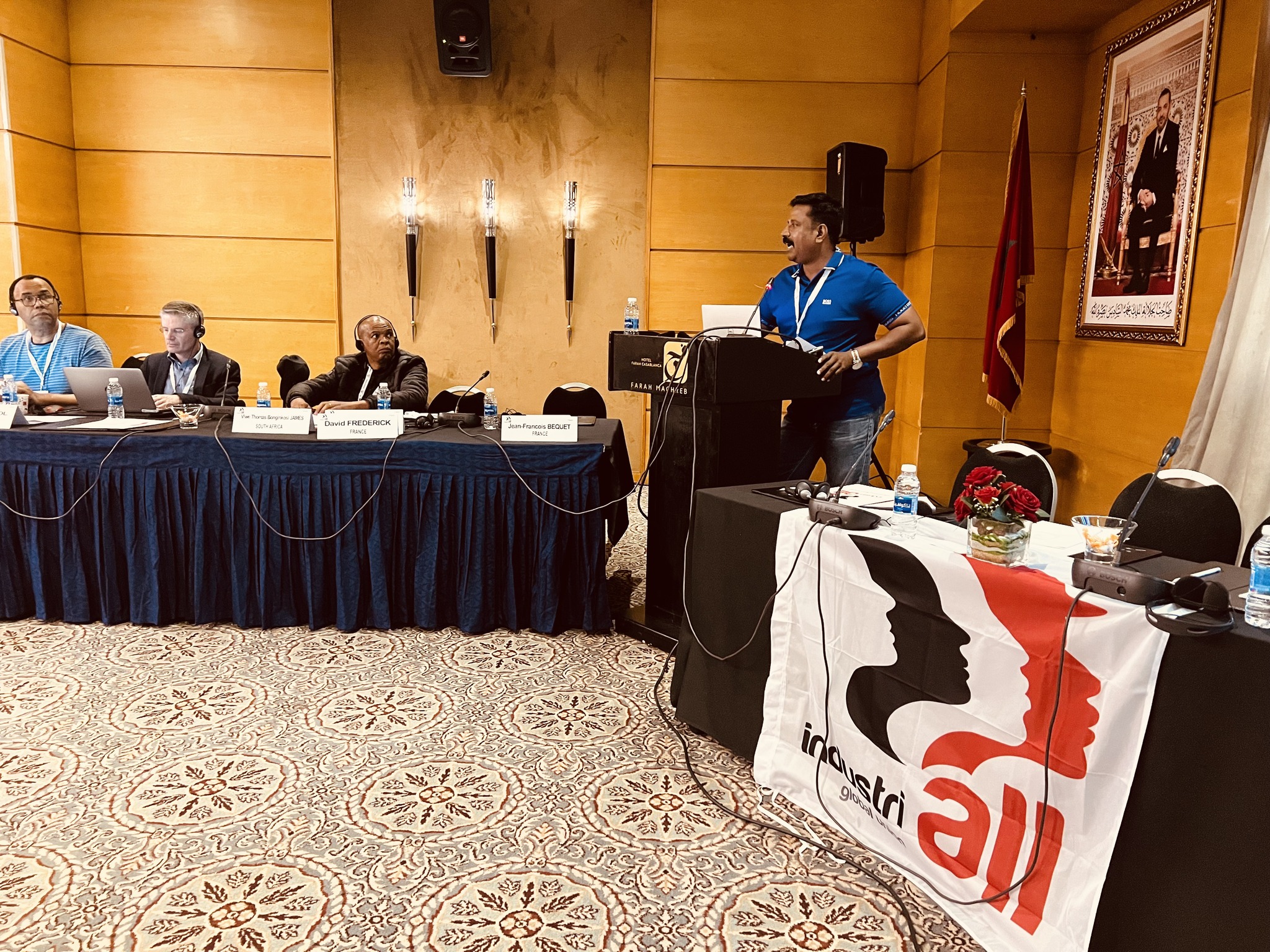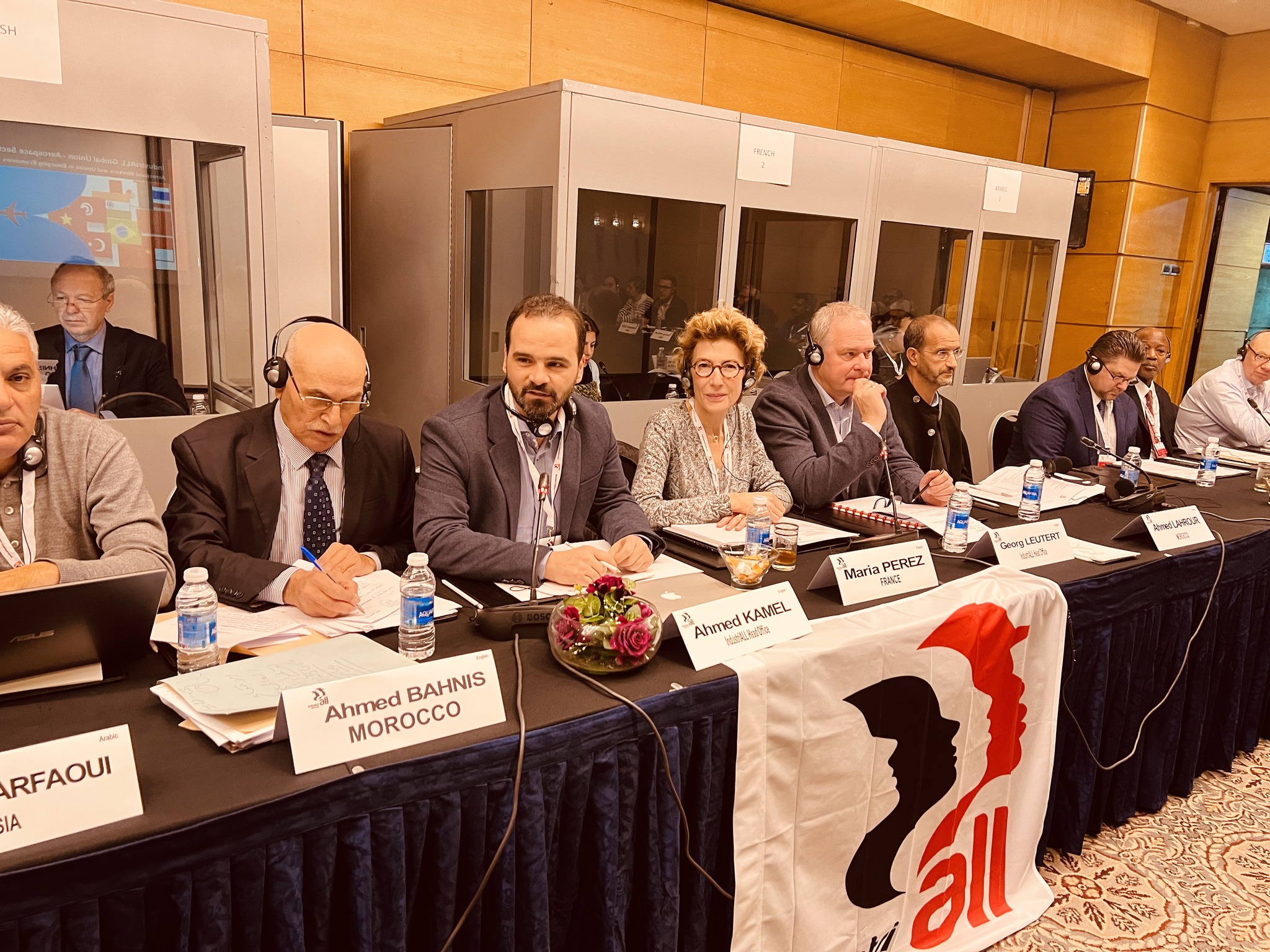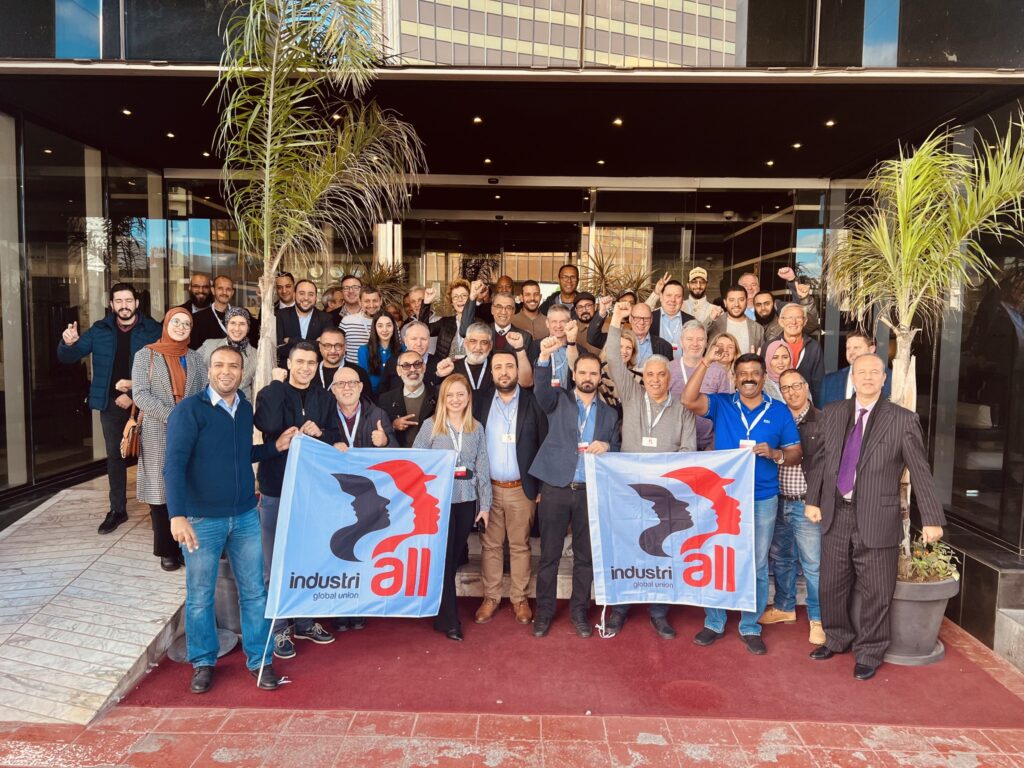2 February, 2023At the end of January, IndustriALL affiliates in the aerospace sector met in Casablanca, Morocco, to discuss the industry and a strategic roadmap ahead. The region was chosen to emphasize the importance of emerging aerospace economies like Mexico, India and the MENA region, mainly Morocco and Tunisia.
IndustriALL aerospace director Georg Leutert stressed the importance of union work being global:
"We need to broaden our perspective and participation. We all share the same values, and we need to make that a reality along the supply chain around the world. Workers have global rights and global trade union networks is a way to build knowledge and support. We can learn a lot from each other; focus on best practice and spread it."
Mahmood Arbouch, from Morocco's policy center for the new south, gave an overview of the aerospace industry in the country, which currently employs 41 per cent women, mainly in wiring harnesses. The aerospace industry is growing in both Morocco and Tunisia, although challenges ahead include a full recovery from effects of the global Covid pandemic, global supply disruptions, keeping up with digitalization, climate change and its implications on the industry, reducing skills gaps and preparing for increasing passenger traffic.
Abdelaziz Arfaoul, FGME-UGTT general secretary, described the challenges for workers in the sector in Tunisia, a country with high unemployment and political instability, affected by the war in Ukraine and the aftermath of the global pandemic. Unions need to address the hazardous working conditions in the aerospace industry, as well as the low salaries. There is an impression that many dangerous and labour intensive jobs are outsourced to the MENA region.
Participants from Morocco and Tunisia expressed the need for social justice and raised the question as to how it is achieved. The aerospace sector is witnessing rapid growth, and precarious contracts are a problem in the region, as is union busting. There are examples of multinational companies that work well with unions in their home country but disrespect their own codes of conduct in the region.
“Morocco and Tunisia are emerging countries for the industry, where serious efforts to organize the workers are underway and union power is growing to counter union busting,”
said IndustriALL regional secretary Ahmed Kamel.
Outsourcing is a major problem at Embraer in Brazil. Brazilian colleagues told the meeting of the company's refusal to sign a CBA, resulting in layoffs and increased outsourcing.
In 2020, Embraer laid off 2,500 workers – at the same time the number of outsourced workers increased by 19,11 per cent. There is a strong turnover process of laying off older workers and hiring outsourced workers instead at 1/3 of the salary, all of which has a direct consequence on the safety in the workplace.
Taking action over poor wages and working conditions, workers at several TATA aerospace companies in India formed a union and started to organize. The employer responded by dismissing them. The union then brought the case to the labour department, but as the company is located in a special economic zone, the laws under the labour department are not valid.
“We have filed a petition in the hight court. We don’t want money; we want reinstatement. We are fighting for basic human rights. We fight for a safer and better future for our children,”
said R.D.Chandra Shekar, working president, TATA Advanced Aerospace Systems Workers Trade Union Congress.

Aerospace workers across globe face the same challenges and problems, it is the degrees that vary.
John Holden and Richard Jackson from US Machinists Union described the situation in Washington state and how the union works to maintain and provide good union jobs in their communities. Creating the Machinist Institute has opened an opportunity to provide hands-on training for workers to grow in the workplace. They are also looking to provide childcare at night and on weekends, which can be a stumbling block, especially for women workers, from taking advantage of advancement or even keeping the job you have.
Ian Waddell from UK’s Unite the Union talked about the triple crises Europe is currently facing – energy crisis, raw material crisis and a cost-of-living crisis. To tackle it, unions are calling for urgent action to tackle the energy crisis without neglecting climate change,
solutions for critical raw materials and higher wages for workers.
Participants in the meeting also discussed priorities going forward, which include decarbonization, digitization and supply chain due diligence.
The meeting concluded with the adoption of a solidarity resolution on the trade union situation in Morocco, Tunisia, India and Brazil, and a promise to support to improve and resolve issues.
“The future of the aerospace industry will depend on the ability to decarbonize aviation. Trade unions have to be involved in this massive transformation from the very beginning to make sure that it is just and socially responsible,”
said Maria Perez from French union Force Ouvrière and sector co-chair.










